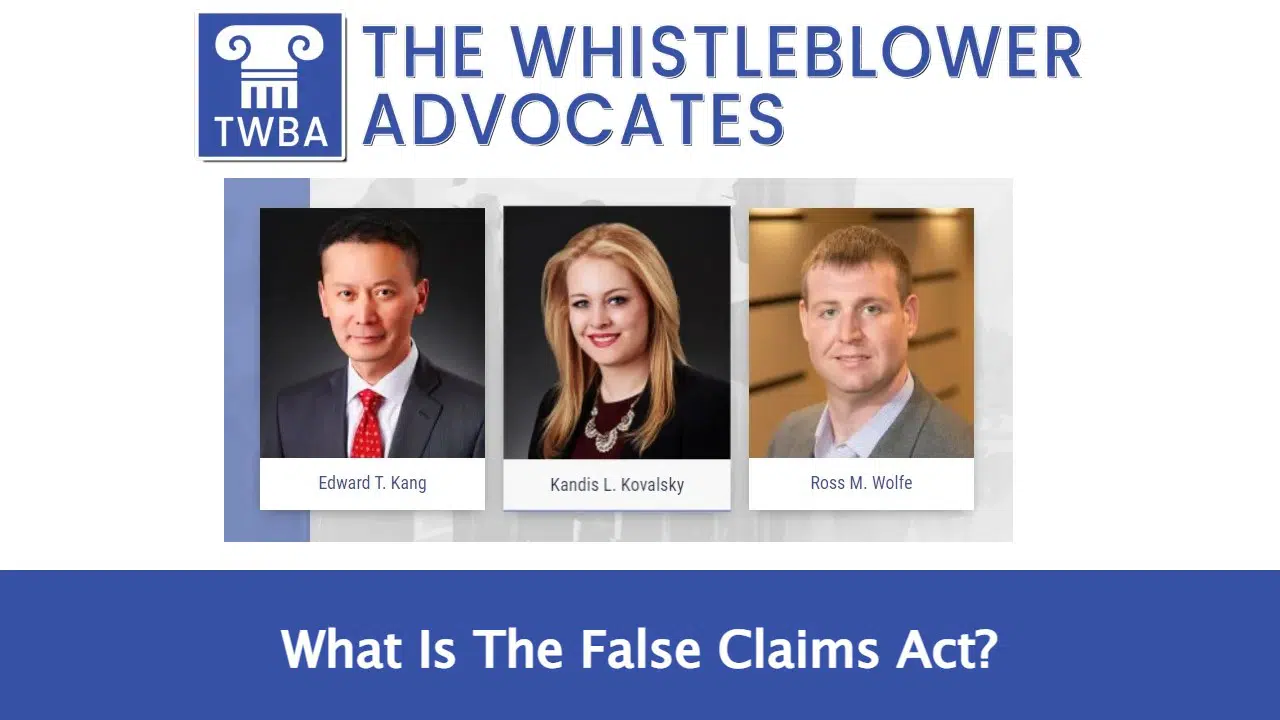The federal False Claims Act is easily the most popular law originally enacted during the civil war by Abraham Lincoln as a fraud prevention measure. In present times, the False Claims Act remains one of the federal government’s primary tools in the fight against fraud, waste, and abuse. This whistleblower law imposes civil (monetary) liability on individuals and companies who submit false claims to the federal government, and/or through their conduct cause others to submit false claims to the government. Through these actions, the federal government has recovered billions of dollars, with a large portion of that amount coming from Medicare and Medicaid fraud.
Actions brought under the False Claims Act are known as “qui tam lawsuits” or whistleblower lawsuits because the law allows a private citizen to bring a lawsuit on behalf of the federal government against those who have defrauded the government and its programs. In essence, this law deputizes private citizens to pursue fraud on the government’s behalf and share in the reward.
The first question many people ask when they learn about the False Claims Act is how they can get paid for blowing the whistle. Individuals bringing actions under the FCA are rewarded with a percentage of the amount recovered by the government because of the information they provided. In general, however, whistleblowers pursuing violations of the FCA are eligible to receive between 15%-30% of the funds recovered based on the information they provided.
The False Claims Act can be used to pursue any fraud against the federal government, regardless of the program being defrauded. Any time the federal government is defrauded by a vendor, contractor, service provider, or any other person, the government could use the False Claims Act to recover the money lost by the fraud. However, in general, healthcare fraud occurring in Medicare and Medicaid have been one of the primary drivers of FCA litigation. Government procurement/Government contracts also account for a substantial amount of fraud. Due to the money provided by the federal government in response to COVID-19 such as PPP loans, it is also likely that a significant number of FCA actions will be filed to recover such funds wrongfully obtained.
FCA cases start with a whistleblower, referred to as a “relator” when reporting misconduct under the False Claims Act, who retains an attorney to represent them. If the relator’s information demonstrates an actionable claim under the FCA, the attorney files a complaint in federal court in the name of the federal government and the relator. The complaint is filed under seal to allow the government time to investigate the whistleblower’s information without tipping off the wrongdoer. While investigating the fraudulent conduct, the government will typically meet with the relator at least once to hear their story and gather additional information. Following the investigation, the government will decide whether or not to “intervene” in the action. If the government intervenes in the action, then they become the primary litigators in the case. If the government declines to intervene, then the whistleblower has the option to proceed with the case without the government, who remains the real party in interest.

We serve clients throughout the Delaware Valley including, but not limited to, those in the following localities: Pennsylvania including Berks County, Bucks County, Chester County, Delaware County, Montgomery County, and Philadelphia.
Contact Us | The Whistleblower Advocates
Privacy Policy | Terms of Service
Please do not include any confidential or sensitive information in a contact form, text message, or voicemail. The contact form sends information by non-encrypted email, which is not secure. Submitting a contact form, sending a text message, making a phone call, or leaving a voicemail does not create an attorney-client relationship.
Copyright © The Whistleblower Advocates. All Rights Reserved